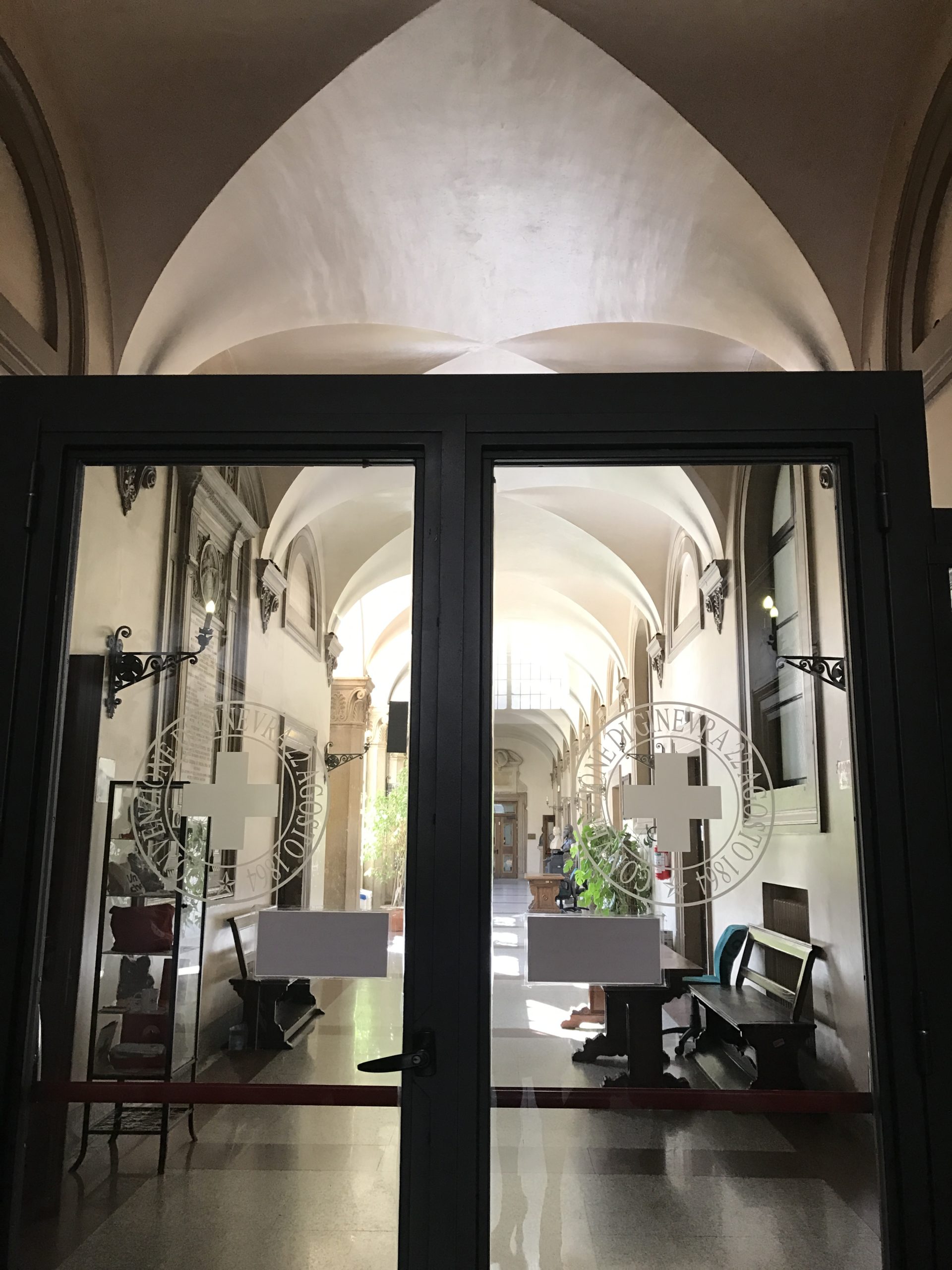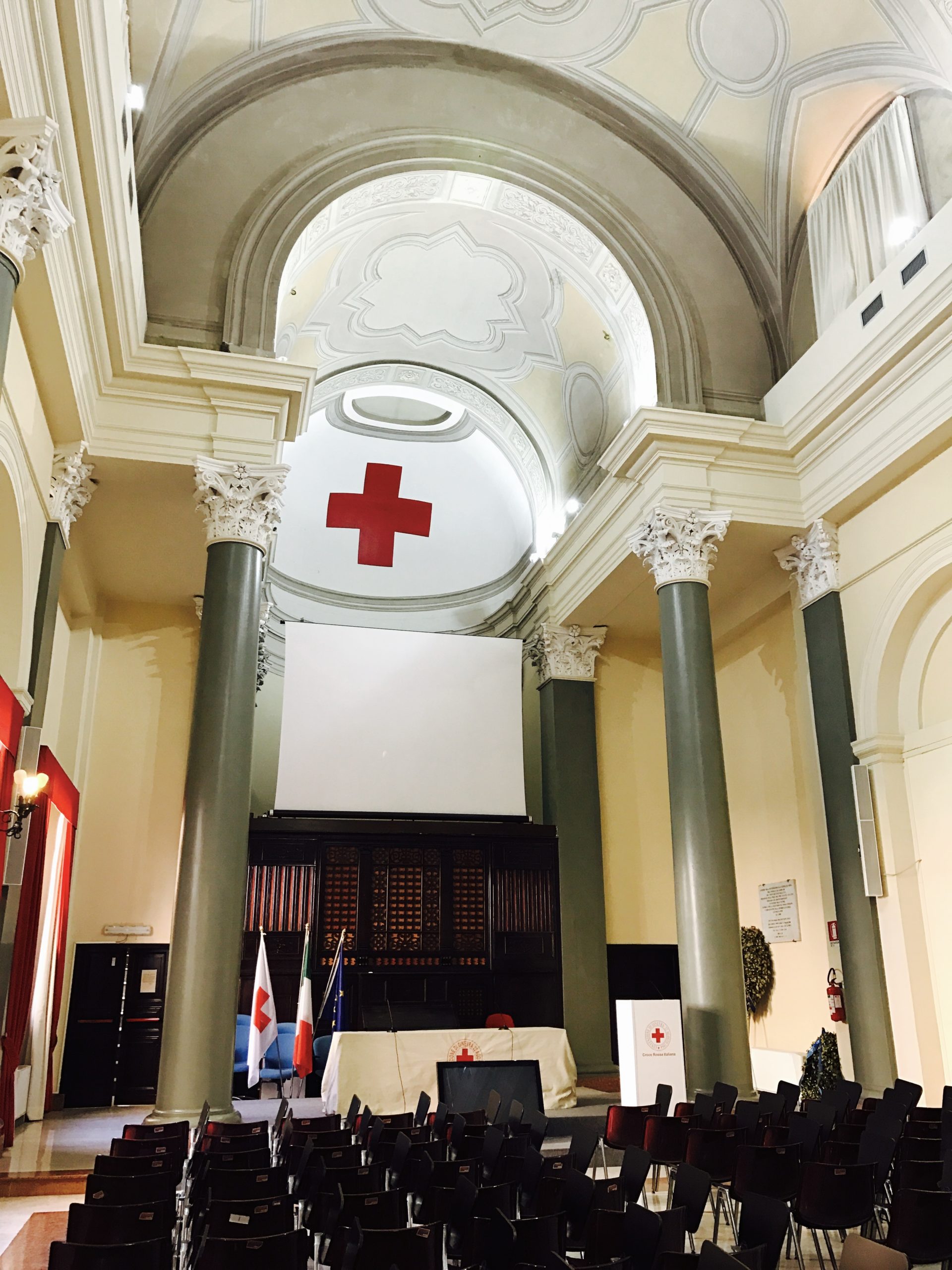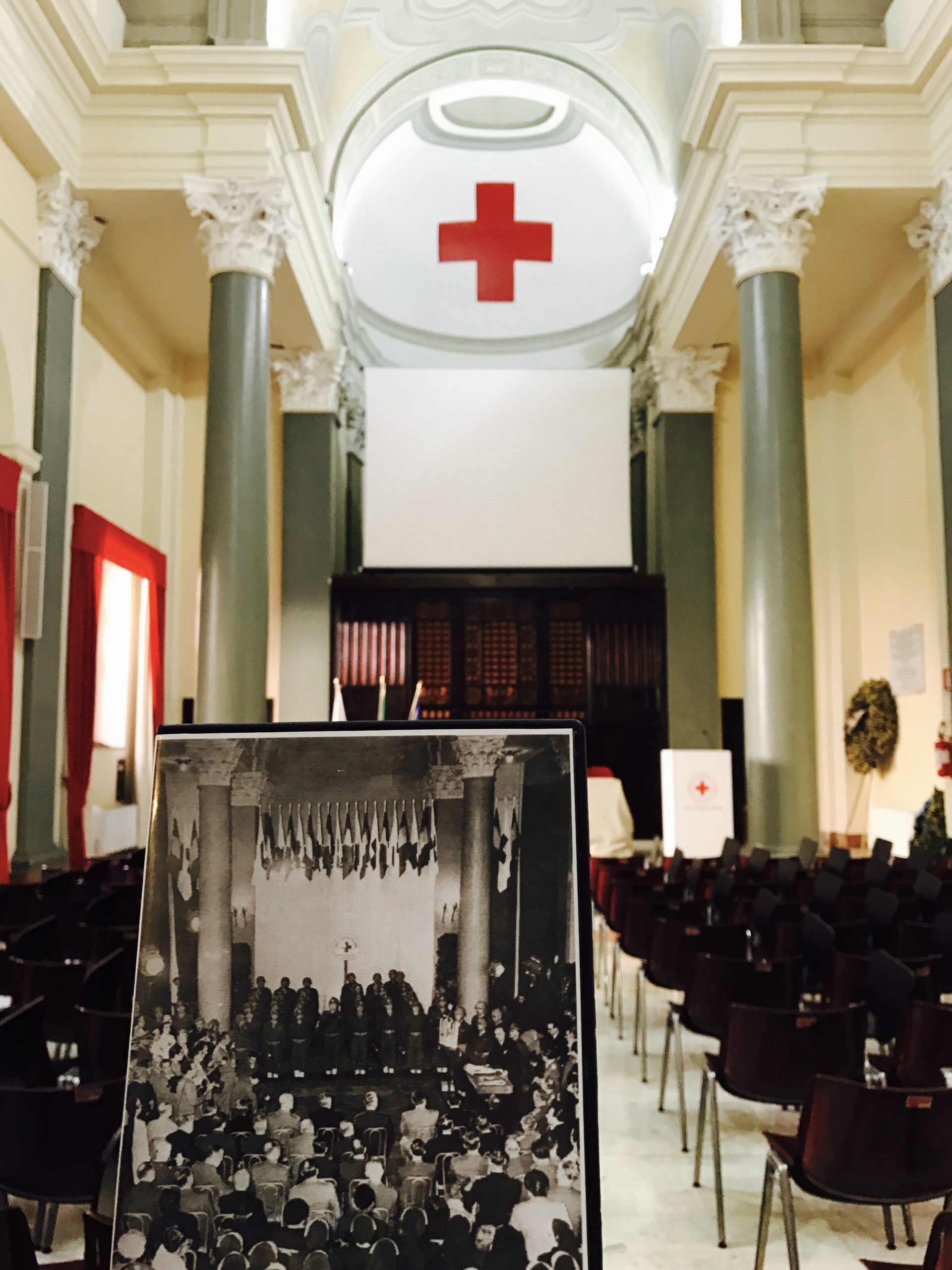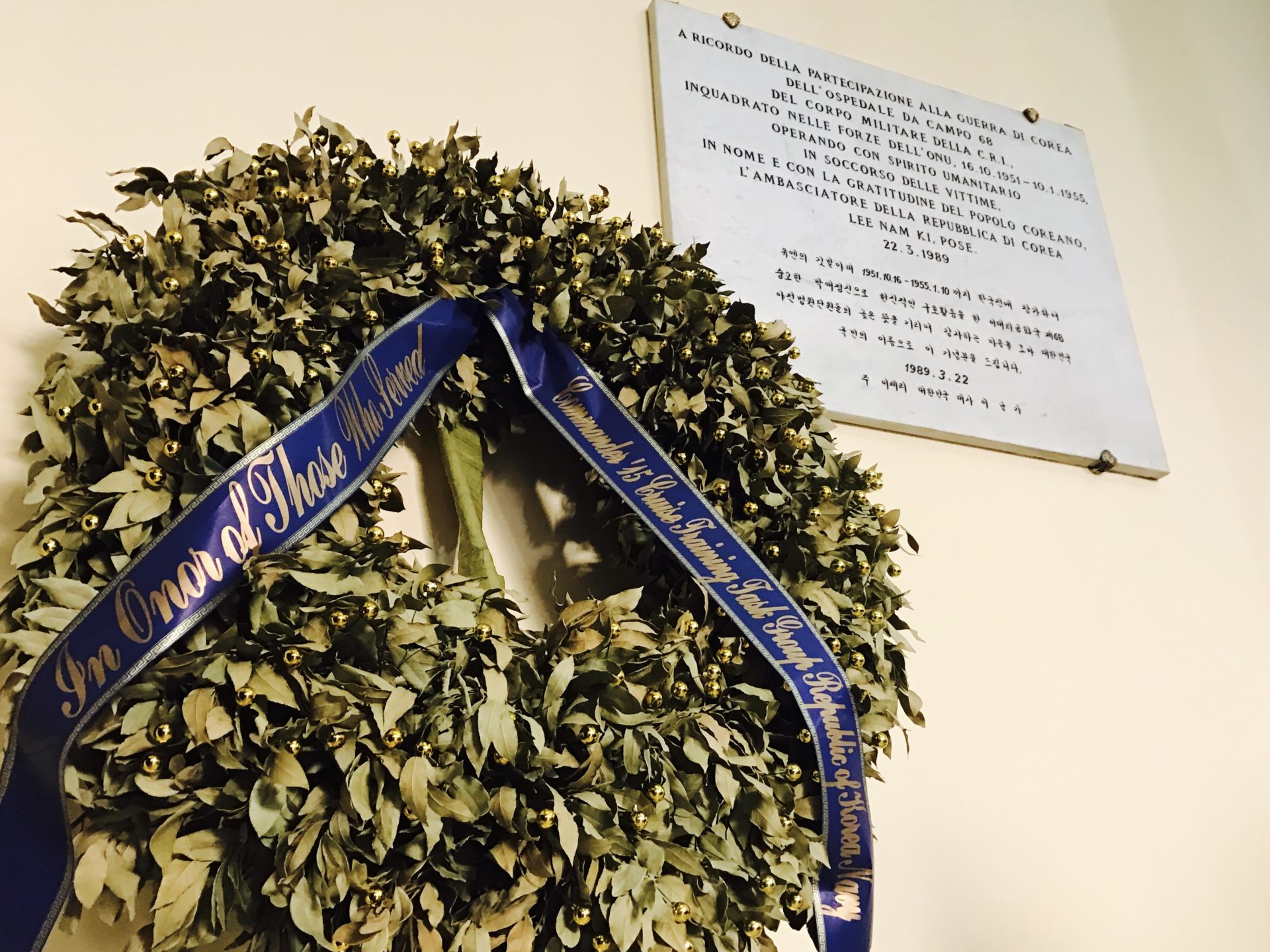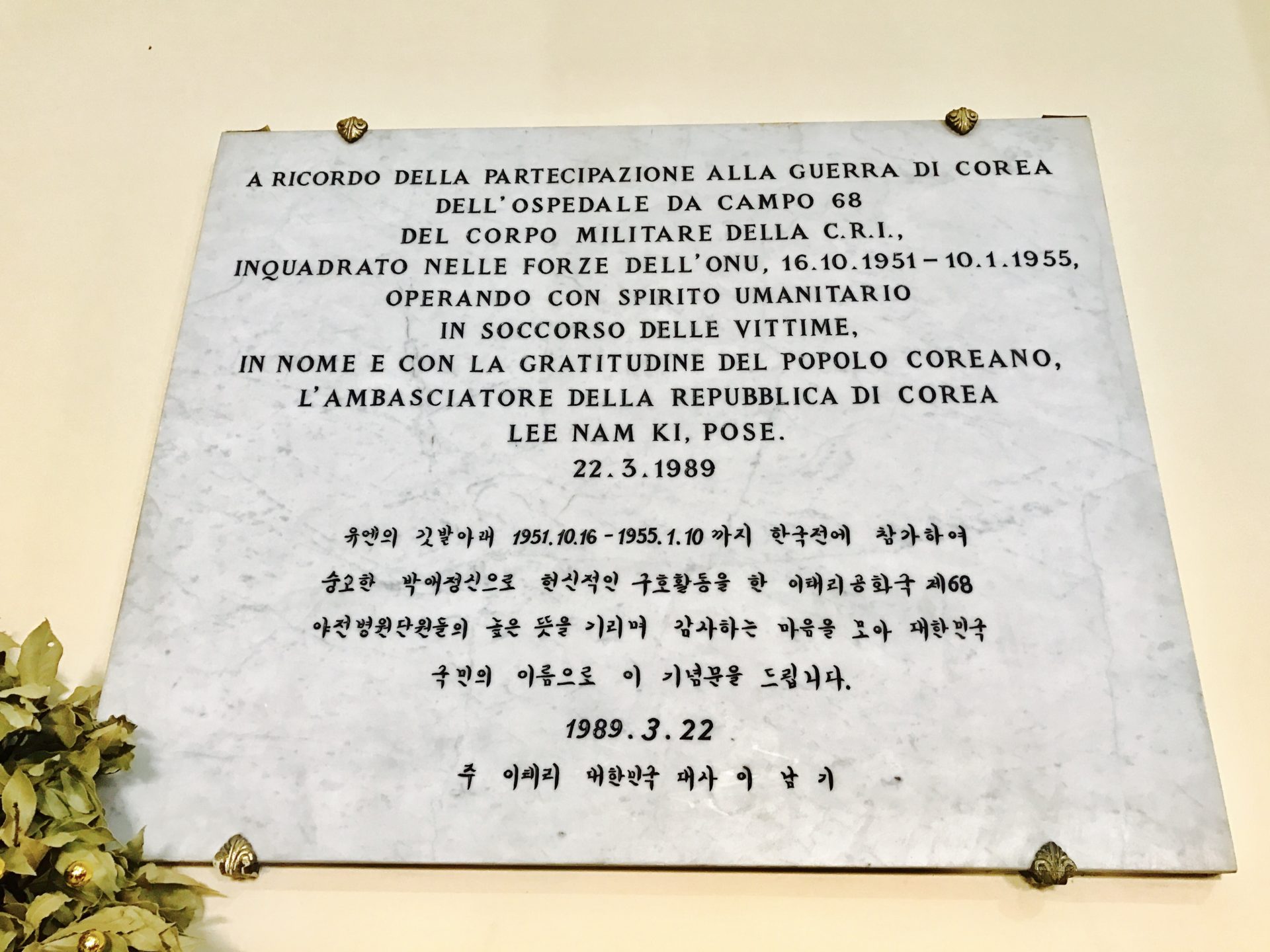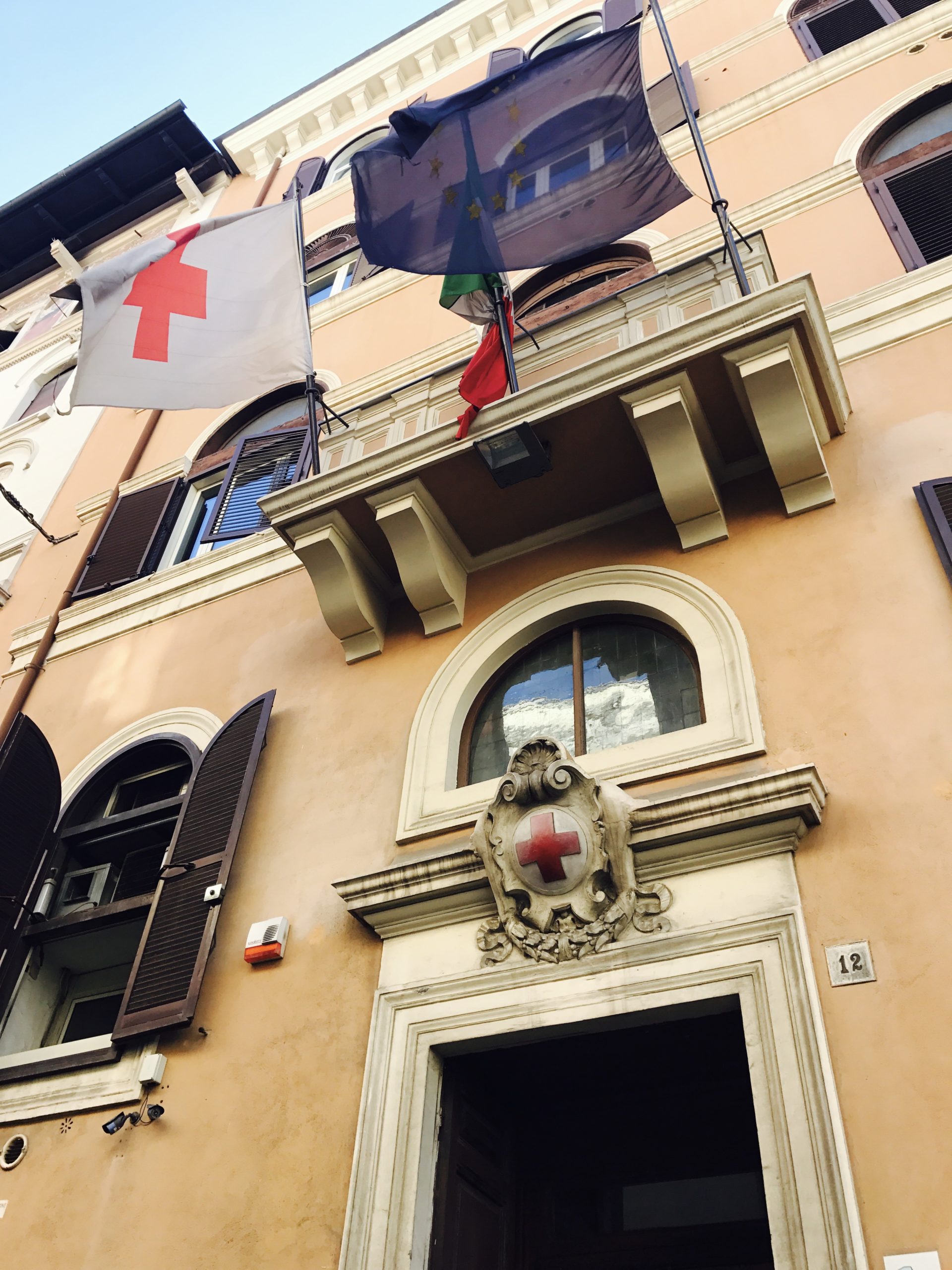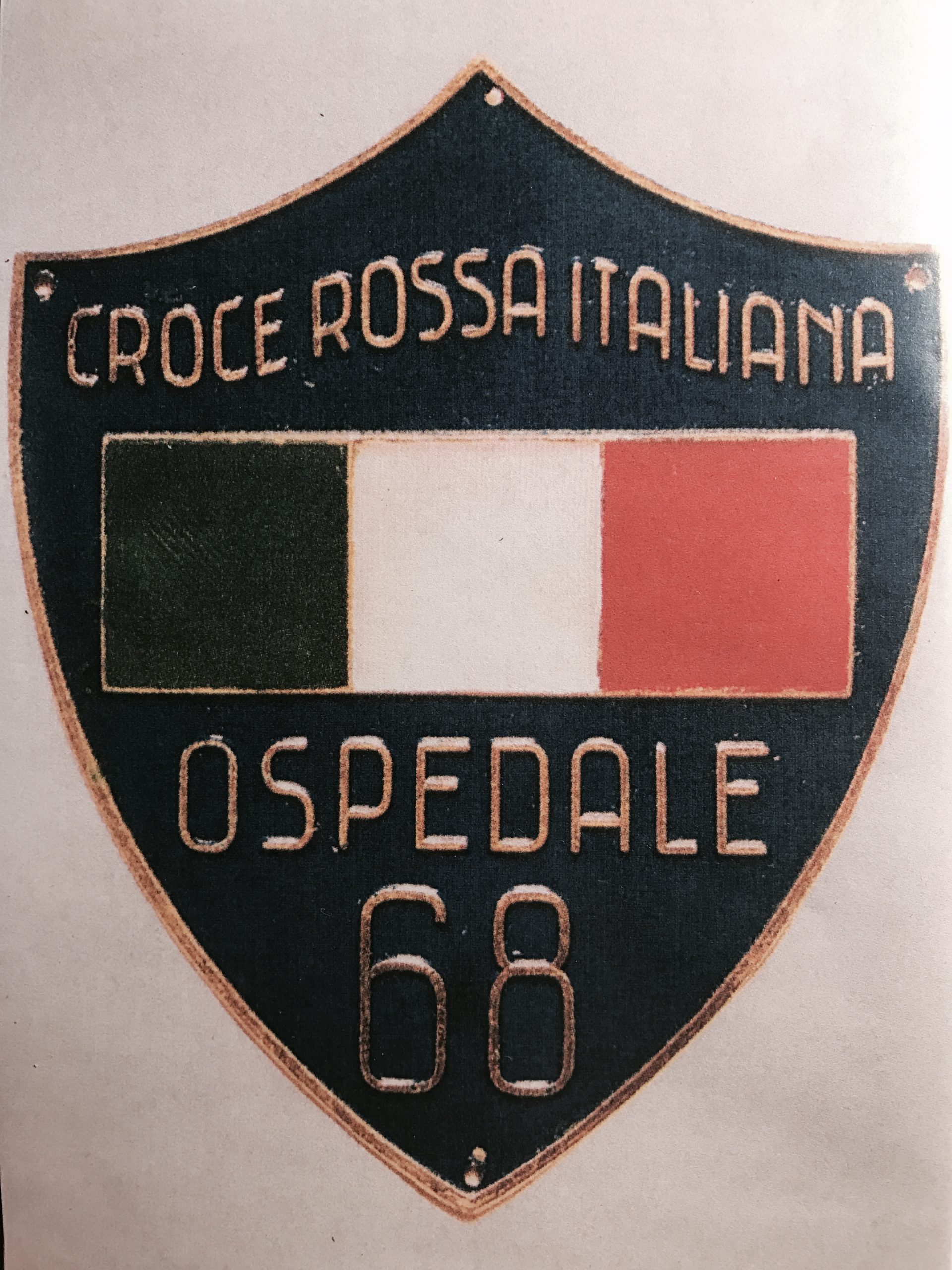Veteran Stories
>> [FOREIGN LANGUAGE].
>> So he’s the colonel lieutenant of the …
>> Claudio …
>> … Claudio …
>> … de Felici …
>> … de Felici …
>> [FOREIGN LANGUAGE].
>> … of the military corp …
>> Italian Red Cross.
>> … of the Italian Red Cross.
>> And we are in [FOREIGN LANGUAGE].
>> Okay. We are in the [INAUDIBLE].
>> [FOREIGN LANGUAGE].
>> We are in the room of the Red Cross where the personnel departed for the war in 1964.
>> [FOREIGN LANGUAGE].
>> October 16th, 1951.
>> [FOREIGN LANGUAGE].
>> So the hospital was operated from December 1951 to 1954 …
>> [FOREIGN LANGUAGE].
>> … and the personnel …
>> [FOREIGN LANGUAGE].
>> … were repatriated in …
>> [FOREIGN LANGUAGE].
>> … until the 10th of January …
>> [FOREIGN LANGUAGE].
>> … of 1955.
>> [FOREIGN LANGUAGE].
>> Mm-hmm. The hospital was composed of paramedics …
>> [FOREIGN LANGUAGE].
>> … medical officials …
>> [FOREIGN LANGUAGE].
>> … and …
>> Paramedic.
>> Paramedics, yeah.
>> [FOREIGN LANGUAGE].
>> Voluntary nurses …
>> [FOREIGN LANGUAGE].
>> … and Korean personnel …
>> [FOREIGN LANGUAGE].
>> … for the services …
>> Of the hospital.
>> … yeah, of the hospital.
>> [FOREIGN LANGUAGE].
>> The Korean authorities …
>> [FOREIGN LANGUAGE] the American authority.
>> … and the American authorities …
>> [FOREIGN LANGUAGE].
>> … of the …
>> [FOREIGN LANGUAGE].
>> … oh, of the coalition …
>> [FOREIGN LANGUAGE].
>> … oh, appreciated …
>> [FOREIGN LANGUAGE].
>> … the work …
>> [FOREIGN LANGUAGE].
>> … the work done by the Italian personnel …
>> [FOREIGN LANGUAGE].
>> … of hospital number 68, yeah.
>> Why was it called the hospital number 68?
>> I don’t remember.
>> [FOREIGN LANGUAGE].
>> Sixty-eight …
>> [FOREIGN LANGUAGE]. Now I don’t remember in this moment, but there is [FOREIGN LANGUAGE]. I don’t remember now because …
>> I’m very curious.
>> … this number.
>> I’m curious. I want to know, yeah.
>> [FOREIGN LANGUAGE].
>> Okay.
>> My name is Claudio de Felici. I am a lieutenant colonel of Italian Red Cross, and now we are in [INAUDIBLE] of headquarter of Italian Red Cross. [FOREIGN LANGUAGE].
>> How many people went to Korea?
>> One hundred people went to Korea to serve the fine hospital number 68 during the Korean War, and the hospital stayed in Korea from November 5 [FOREIGN LANGUAGE] 1951 to 1954 December. Italy went. They sent the hospital in Korea. Italy was not a part of the United Nation, but Italy is member wholly de NATO. Mamma mia.
